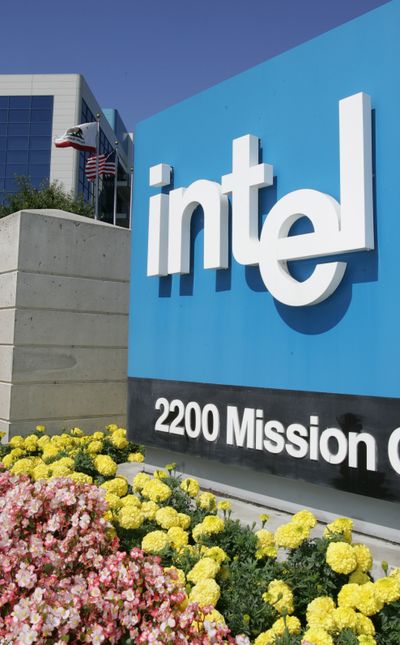Motley Fool: Intel keeps setting pace for the pack

Chip giant Intel (Nasdaq: INTC) has long dominated the processor market, and its chips power the majority of computers today. You’d do well to consider it for your portfolio. Here’s why:
For starters, while most chipmakers outsource the actual production of chips they design to third-party contract manufacturers, Intel remains committed to its own chip fabrication facilities. This allows it to focus heavily on next-generation manufacturing technologies while keeping that knowledge in-house. This comes at a cost, as foundries require billions in capital expenditures.
But for Intel it’s well worth it. Indeed, it may end up helping the company boost its presence in mobile communications markets, as some rivals there have suffered due to production delays.
Then there’s the upcoming release of the new Windows 8 operating system, which may boost growth in traditional PCs, where Intel dominates.
Intel even pays a dividend, recently yielding a solid 3.5 percent. On top of that, it has a strong balance sheet, and its price-to-earnings (P/E) ratio has recently been well below its five-year average. Both revenue and earnings have been growing at double-digit rates over the past few years, and revenue growth has been accelerating.
When it comes to chipmakers, Intel remains a cut above the rest. (The Motley Fool owns shares of Intel, and our newsletters have recommended it as well.)
Ask the Fool
Q: What are these “points” I read about in financial articles? – S.W., Dunkirk, N.Y.
A: There are several kinds of points. When securing a mortgage, for example, you can often get a lower interest rate if you opt to pay some points upfront, each of which is 1 percent of the value of the loan.
Indexes such as the Dow Jones Industrial Average or S&P 500 are often quoted in points, not dollars, even though their components may be stock prices.
Finally, a “basis point” is one one-hundredth of a percentage point. So an interest rate that rises from 4 percent to 4 1/2 percent has advanced 50 basis points. We hope we’ve made our points!
Q: What’s a company’s “burn rate”? – F.M., Baton Rouge, La.
A: It reflects how quickly it’s burning through its cash. This generally isn’t an issue for established companies, but with small and quickly growing ones, a glance at the burn rate can be valuable. The number to examine is free cash flow, which is income from operations, less capital expenditures.
For example, imagine that in its most recent quarterly report, Economical Aviaries (CHEEP) reported negative $25 million in free cash flow, as its cash balance fell to $75 million from $100 million. It’s not unusual for firms to lose money in their early years, but it’s also what puts many of them out of business.
In CHEEP’s case, at its current burn rate it will run out of cash in just a few quarters. To stay alive, it will have to reduce spending (possibly resulting in slower growth), or find some more money (perhaps taking on debt or issuing additional stock, diluting value for existing shareholders).
My dumbest investment
Years ago, I sold my 30 (not very many) shares of Apple at $15 per share because the stock was just sitting there doing nothing. Later, the first iPhone came out, and the rest is history. Yikes! ñ- N., online
The Fool responds: You’ve probably done this painful math already: With Apple’s stock price recently above $620 per share, those 30 shares that you sold for less than $500 would be worth more than $18,000 today. Most investors can tell sad tales of having lost a fortune by selling too soon – or hanging on too long. If you think a stock is overvalued or isn’t very promising, or you just don’t know much about it, you should sell. If you’re confident it’s promising and undervalued, though, patiently hanging on can pay off.
Apple stock spent most of 1998 trading in the single digits (split-adjusted) and didn’t really start surging until 2004. The iPod debuted in 2001, the iPhone in 2007 and the iPad in 2010. (The Motley Fool owns shares of Apple, and its newsletters have recommended shares of it.)